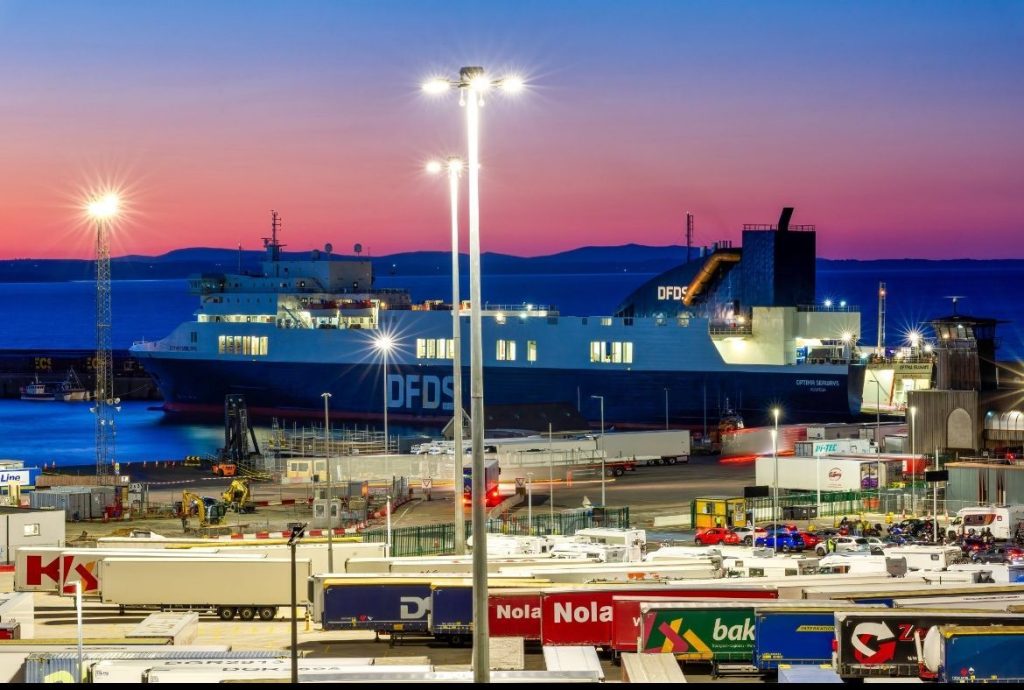Most distribution companies keep their route planning solution for 15 – 20 years before replacing it. Today, more so than ever before, within that timeframe businesses, industries, economies and technologies undergo significant change. Distribution business models need to ensure they change in step, which in turn means their route planning solutions need to evolve and grow in the same direction.
 However, the financial models of many route planning vendors are not designed to foster that seamless evolution, innovation and growth over time. Instead, many solutions become operational liabilities because of changes brought upon by vendor financial models that disrupt product innovation. Gary Taylor VP Fleet Solution in EMEA at Descartes, outlines three vendor financial models that can be high risk for long-term evolution and growth of their route planning solutions.
However, the financial models of many route planning vendors are not designed to foster that seamless evolution, innovation and growth over time. Instead, many solutions become operational liabilities because of changes brought upon by vendor financial models that disrupt product innovation. Gary Taylor VP Fleet Solution in EMEA at Descartes, outlines three vendor financial models that can be high risk for long-term evolution and growth of their route planning solutions.
Private equity owned vendors.
Private equity firms have two guiding principles that significantly and negatively impact the evolution and growth of the once-successful route planning solutions they acquired. First, they need to make the route planning business more profitable to pay themselves and service any debt they may have used to finance the purchase. Second, they need to get the business in a financial position to sell the company at a profit to generate a return for their investors – typically within a five to seven-year timeframe.
With the clock ticking, private equity firms focus first on cutting costs: all non-revenue generating roles such as development and support are subject to extreme scrutiny. Combined with the consequential “brain drain” that occurs as leading employees become disillusioned with the cost reduction focus means product innovation and attention to customer issues begin to diminish. Over time, what was an industry leading solution becomes an “also ran” as the product does not keep pace with new capabilities required by customers or industries, leverage the latest technological advances or highly evolving cyber security requirements.
Key questions to ask to ascertain future product and support direction of a PE owned route planning solution:
- What future product plans does the business have for the product and support organisations? Are they growing or shrinking in headcount?
- What similar or complementary companies does the PE firm own and what are their plans for integration?
- How many years has the PE firm held the route planning vendor and when does it anticipate selling that company?
Consolidator-owned vendor
Industry consolidators are acquisition-based technology companies. They look for companies whose founders are looking to sell or distressed companies’ shareholders who are trying to get some level of return. Industry consolidators are similar to private equity firms in that they focus on improving the profitability of the acquired company and do it through cost cutting. The difference is that an industry consolidator maintains ownership indefinitely. However, industry consolidator owned companies suffer the same fate as private equity owned ones – product innovation, evolution, growth and support diminish over time.
Key questions to determine future product and support direction of an industry consolidator owned route planning solution:
- What future product plans does the industry consolidator have for the product and support organisations? Are they growing or shrinking in headcount?
- How have those acquired companies grown their solution capabilities and support since being acquired?
- What similar or complementary companies does the industry consolidator own?
- Are there plans for integration of those companies?
Venture-backed vendors
A number of route planning companies were started in the early to mid-2010s powered by low interest rates and the ability of venture capital (VC) firms to easily raise money. With a growing economy, that accelerated after the initial impact of the pandemic. VC firms were happy to have their portfolio route planning companies prioritise market-share growth over profitability. Capital for investing was cheap and the ability to borrow money was easily available. This aggressive ‘growth without regard to cost’ business model does have some upside. It allows more capacity for innovation and risk-taking; however, growth without profitability is not sustainable in the long-run and few companies grow their way out of unprofitable operating models.
The global economic downturn has, in recent years, meant that VC-backed route planning vendors have had to shift focus towards profitability. This shift in strategy puts extreme pressure on their growth-first operating models, the maintenance of higher levels of product innovation and support, and possibly even the outcome of the company.
Many VC-backed companies have been forced to restructure, cutting resources across the company to reduce or eliminate their cash burn. The impacts have been significant in terms of the reduction in sales, development, support and other parts of the company. In some cases, route planning vendors have left major geographic markets.
Key questions to determine future product and support direction of an industry consolidator owned route planning solution:
- Is your company profitable and is the most recent financial statement available for review?
- Have you had to restructure recently because of a tougher economy or less access to capital?
- How many years into your last VC investment round is your company?
- If you are VC-backed what is their timing for closing and liquidating your funding round?
- Do you anticipate needing additional funding to operate in the next 2 years and how do you plan to obtain it?
Conclusion
Route planning solutions are foundational to any logistical fleet operation and the company’s success. This is why it is so important to understand the financial model of the route planning solution vendor and the role that outside funding resources play in the growth, innovation and evolution of the company and its products. This can tell you much about your existing route planning solution vendor, its time to replace them, and whether a potential new vendor will have the wherewithal to meet your needs today and in the future.


